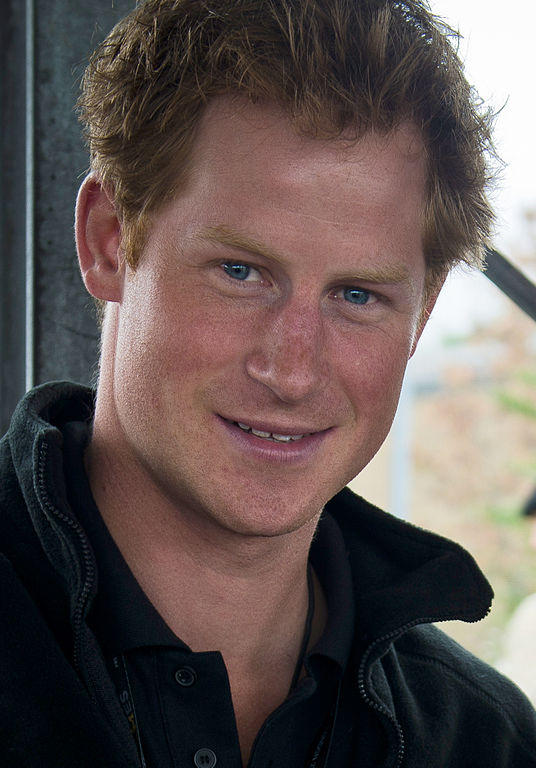 The mental health community is reacting with alarm after Prince Harry debuted in a widely-watched livestream interview with trauma expert Dr Gabor Mate in which he claimed cannabis and an illegal psychedelic drug named ayahuasca helped him to deal with mental health issues after his mother’s death.
The mental health community is reacting with alarm after Prince Harry debuted in a widely-watched livestream interview with trauma expert Dr Gabor Mate in which he claimed cannabis and an illegal psychedelic drug named ayahuasca helped him to deal with mental health issues after his mother’s death.Dr. Max Pemberton, a psychiatrist with the UK’s National Health Service blasted the prince’s comments as “hugely irresponsible” for wading into the debate on mental health “with reckless ignorance, oblivious to the facts, and the catastrophic effects his words could have.”
During the interview, the Prince endorsed the use of marijuana, which is illegal in the UK, and the shamanic hallucinogen drug known as ayuhuasca which is illegal in both the UK and the US.
“Harry plainly has no understanding of the serious damage these substances can wreak on users – damage that I see on mental health hospital wards with upsetting frequency,” Dr. Pemberton wrote in the Daily Mail. “The truth is he has such a narrow experience of life, limited by wealth, fame and privilege, that he cannot begin to guess what disastrous effect drugs can have on people in different circumstances.”
The doctor goes on to cite Harry’s rather dismal history as a reason to doubt his credibility as a mental health counselor.
“He appears neither particularly happy nor stable. Looking at the recent outcomes of his life, he has left his home country, broken off relations with members of his family, seems distanced from his friends back home and no longer has an Army career. That doesn’t strike me as a ringing endorsement for self-medication with mind-altering substances.”
Pemberton goes on to cite research by the Royal College of Psychiatrists showing that regular use of marijuana doubles the risk of developing schizophrenia or experiencing a psychotic episode, particularly in young users. Numerous studies have also found that prolonged use is associated with personality and behavioral changes, especially social withdrawal and what psychiatrists call ‘avolition’ – a lack of self-directed motivation. Marijuana use is also linked to dropping out of school, lower income, greater dependence on benefits, unemployment and dissatisfaction with life – as well as an increased propensity to suicide.
“As for his enthusiasm for ayahuasca, a mind-altering drink made from plants found in the Amazon rainforest including the Psychotria viridis shrub, I am almost speechless at the stupidity of his endorsement,” Pemberton continued.
Harry spoke glowingly about the positive effects of ayahuasca, calling it a kind of “windscreen cleaner for the mind,” and claiming that it “brought me a sense of relaxation, release, comfort, a lightness that I managed to hold onto for a period of time.”
 Dr. Pemberton called the Prince’s comments about the drug, which is known to cause paranoia, panic attacks, and can lead to lasting mental damage, “a complete and utter embarrassment.”
Dr. Pemberton called the Prince’s comments about the drug, which is known to cause paranoia, panic attacks, and can lead to lasting mental damage, “a complete and utter embarrassment.”
Pemberton is not alone in his outrage over the Prince’s comments. He is joined by the family members of Jennifer Spencer, 29, who died by suicide in 2019 after traveling to a yoga retreat in Peru where she imbibed ayahuasca. The drug caused a severe psychotic reaction which led to her taking her own life.
In the wake of the tragedy, the coroner issued an urgent warning about the drug saying: “There is a lack of awareness about shamanic hallucinogenic drugs and their propensity to cause or exacerbate psychosis. Action should be taken to prevent future deaths.”
Spencer’s aunt, Fiona Chase, chastised the prince for praising such a dangerous drug. “He should not be speaking positively about this drug. It's irresponsible because a lot of people look up to him. It worked for him, but it certainly didn't work for Jenny. Like every drug, different people react differently.”
No one familiar with the side effects of this drug would ever endorse it for use by anyone, let alone those with mental health issues. Research has shown that over time, the use of ayahuasca can result in what’s known as persistent psychosis which includes mood disorders, disorganized thinking, ongoing and persistent paranoia, and visual disturbances, all of which can occur for months or even years after using the drug.
According to the Newport Academy, a network of teen mental health and substance abuse treatment centers, even though persistent psychosis is more common in individuals who have a history of psychological problems, “it can happen to anyone, even after a single exposure to a hallucinogenic drug.”
Physical side-effects include nausea and intense vomiting (which shamans believe is cleansing the body, mind and soul of toxins), high blood pressure, increased heart rate, seizures, ataxia (lack of coordination), respiratory arrest and coma.
For good reason, the Prince is being criticized for promoting yet another quack therapy based on nothing more than anecdotal evidence which is the least relevant and most potentially misleading kind of evidence.
“At best, we can say that if drug use has not exacerbated his mental health problems, then he can count himself extremely fortunate," Pemberton wrote. "He’s been playing Russian roulette with his own brain and, if he’s got away with it, he’s a lucky man.”
While assuming the role of a mental health professional, the Prince commented during the interview that 99.9 percent of people are carrying around some kind of grief, trauma, or loss.
Pemberton argues: “This much is certain: 99.9 per cent of people did not grow up in a palace. Prince Harry has to realize that his experiences are completely insulated from everyone else’s reality – and his self-serving words can cause immense harm to people whose lives he will never understand.”
As a result of this interview and the irresponsible endorsements made of illegal and potentially dangerous drugs, Pemberton believes “The Duke of Sussex has forfeited any right he might have had to be seen as a credible representative for mental health charities.”
© All Rights Reserved, Living His Life Abundantly®/Women of Grace® http://www.womenofgrace.com
